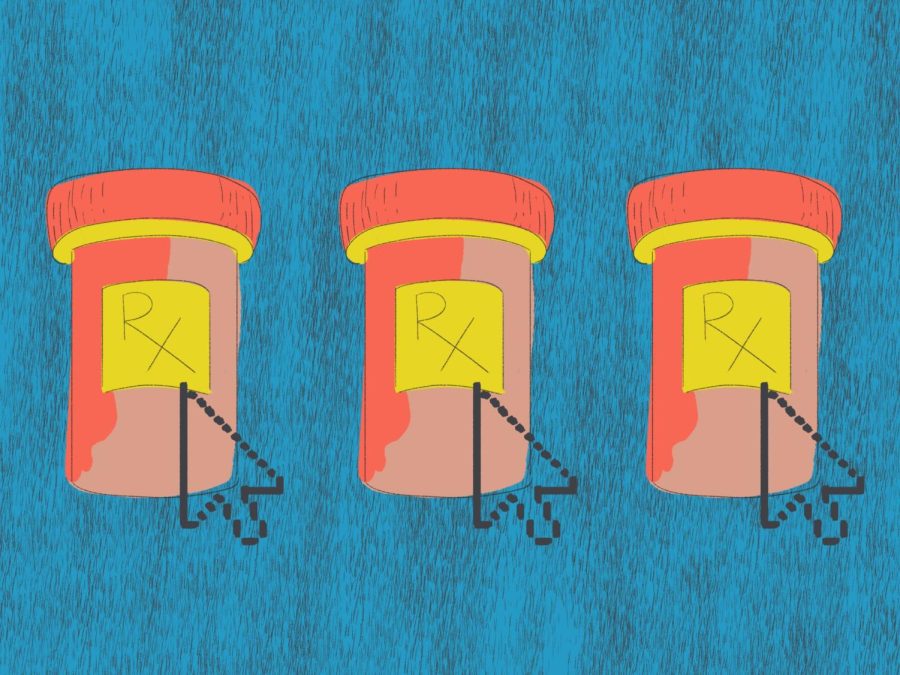Opinion: We need to be wary of online ADHD services
Credit: Alicia Goluszka/The DePaulia
Being impatient. Struggling to concentrate on conversations. Not being good at time management. Being bored easily.
While scrolling down the endless TikTok “For You” page, one TikTok stood out to me: one that listed the above issues as “ADHD symptoms that I didn’t realized [sic] until I got diagnosed.”
As someone that struggles with all of those symptoms, this TikTok (and plenty of others talking about the symptoms of ADHD) left me wondering if I needed to take an assessment.
Going to TikTok’s profile pulled up dozens of other videos set to popular sounds, with young people that looked like me making shorts about their experiences with ADHD: videos listing things that could be symptoms, anecdotes about living with ADHD and even a video listing the “benefits of ADHD.”
Looking at the profile made things much clearer: the TikTok profile was run by Done, a California-based telehealth company offering “personalized online treatment for ADHD.”
Their profile promised fast appointments and provided a link to their website, which offered an assessment to get started — a six-question assessment which took me 45 seconds to complete.
These companies and advertisements have their issues, however. Done and other online mental health startups such as Cerebral made headlines when watchdog group Media Matters found the advertisements on TikTok to be “predatory.”
With ads featuring young people and using popular sounds and TikTok formats, Media Matters found that Done would “specifically gear its advertisements toward young users.”
TikTok users self-diagnosing themselves based off of videos ultimately poses “a treatment challenge,” notes the Wall Street Journal. With self-diagnosis being an issue on the app, advertisements geared towards young users on TikTok can be concerning.
Professor Geoffrey Durso covers ethics in marketing in his classes on consumer behavior at DePaul.
“In general, a lot of people that take ads and want to sponsor content want something to sell,” Durso said. “Sometimes that’s as simple as a click through, you know, they’re generating interest, and once you’re on the website or on the media posts, you can direct their attention in other ways to get to the thing that you’re really most interested in, if it’s a sale, if it’s a sign-up, if it’s some kind of other subscription basis.”
Durso also notes that algorithms play a part in how advertisers create content.
“They’re very targeted, also, of course, so the algorithms are a major issue with regards to how marketers determine what they generate, and what they invest money in, is oftentimes trying to please the algorithm,” Durso said.
Additionally, medical professionals are skeptical about advertising ADHD treatments on social media.
Dr. Peter Jaksa is the founder and clinical director of ADHD Center Chicago, which provides support services for those with ADHD.
“Advertising ADHD treatments on any form of media is a bad idea because it likely reinforces people’s stereotypes about ADHD and might convince them to seek treatments, including medication treatment, that they don’t necessarily need,” Jaksa wrote in an email.
Instead, Jaksa encourages those with concerns about ADHD to consult with qualified health care professionals.
“Any person with concerns about ADHD should consult with a qualified health care professional who can provide an accurate assessment about whether ADHD is indeed an issue for that person,” Jaksa wrote. “Treatment recommendations, if they are necessary, should come from the health care professional and not some advertisement.”
Seeing videos and ads on TikTok for mental health support services may raise questions and concerns: questions like “do I have ADHD?” or “do I need to be assessed?” It’s tempting to visit the sites being advertised for their quick assessments and online services, but it may be better to consult with a qualified professional instead.







